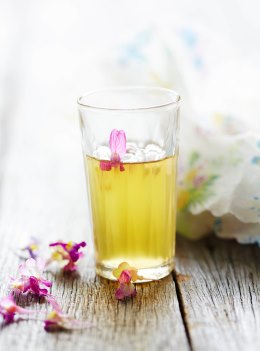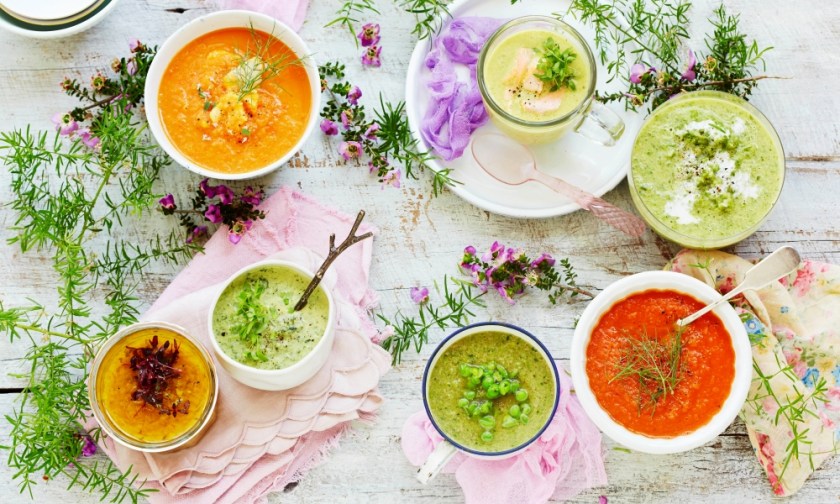Ashleigh Sharman says the time is ripe to tend to, and celebrate, your glorious gut flora garden.
2015: the year of the gut. I might be calling it a bit early but it’s going to be hard to argue this one any different – never have we been so obsessed with gut flora and the like, and all the better for it I say!
“With more people taking health into their own hands, going down the natural therapies route, our awareness of the importance of gut health is growing,” concurs Nutritional Medicine Practitioner and skincare expert, Fiona Tuck who explains how naturopaths and nutritionists are trained to treat the gut as a starting point to treating many health conditions, the skin being one of them.
“Hippocrates said so many years ago that all disease starts in the gut but it has taken us a few thousand years to catch up with his way of thinking! Western medicine is only now just beginning to acknowledge the association between gut health, mental health, allergies and skin disorder which will continue to grow in years to come.”

From bloating to constipation, indigestion to food intolerances, our gut issues have become disturbingly mainstream with research now linking an unhealthy gut to medical concerns such as IBD, IBS, Crohn’s disease, coeliac disease, thyroid problems and diabetes.
“Think of your gut as a garden that can only thrive when the soil is healthy,” says holistic health guru, Lee Holmes.
“Healthy soil requires healthy foods and nutrients that will allow the ‘good guys’ to flourish. By feeding our bodies all-natural, easily digestible foods, we can help our gut to function optimally, without the need to resort to dietary supplements.”
So firmly does Holmes believe in the power of the gut that she’s devoted an entire book to it, especially designed to help restore inner gut health.
The latest addition to her Supercharged Food series, Heal Your Gut includes an easy to follow treatment program, supported by 90 delicious, anti-inflammatory recipes to heal and nourish the gut.
It’s not all about fasting to recalibrate the gut but rather Lee inspires the tastebuds with warming drinks, teas, juices and tisanes; broths and stock; soups; and dessert — also covering the latest ‘it’ trend for fermented foods.

So how’s your gut treating you? A weak gut barrier often shows no obvious digestive signs but remember can appear in the form of food intolerances, celiac disease, allergies and chronic silent internal inflammation.
Fiona says possible signs of a weak gut can include food intolerances, arthritis, allergies, histamine reactions, skin disorders, skin reactions and sensitivities, autoimmune, neurotransmitter and neurological diseases, unexplained fatigue, depression and ridged fingernails — however it’s imperative to seek out the best advice for clients.
“It is important for therapists to know their limits and not to try and take on the role of doctor, dermatologist or nutritionist. Recommending healthy lifestyle tips and advice to complement a home skincare regime is always beneficial for clients however a skin therapist should never cross the line when it comes to recommending supplements, herbs or therapeutic nutritional advice.
“Recommending probiotics and fermented foods for a person with a weakened gut and nutritional deficiencies for example could result in acute histamine responses and nasty skin rashes so professional trusted nutritional advice is always recommended for client safety.”

Fiona’s Tips to Maintain and Restore a Healthy Gut
- Remove toxins from your diet such as processed food, artificial chemicals and environmental toxins such as BPA plastics, plastic food wrapping, household chemicals and non-filtered drinking water.
- Maximise your digestion by taking a tablespoon of lemon juice or apple cider vinegar in warm water every morning.
- Manage stress levels by looking at stress reducing techniques such as yoga, deep breathing and meditation.
- Increase prebiotic fibre in your diet. This will help to nourish the good bacteria already present in the colon. Prebiotics are not to be confused with probiotics that introduce good bacteria into your gut. Prebiotics act as a fertilizer for the good bacteria that’s already in your gut thereby helping to build a healthy protective micro biome.




